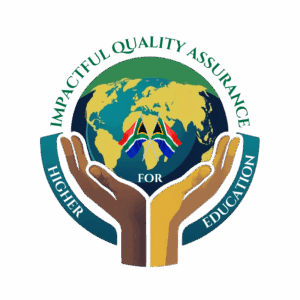

During the 2024 General Assembly Meeting held in Bucharest (Romania) under the frame of INQAAHE Forum 2024, proposals to host this event were formally presented by the different applying agencies. The INQAAHE members later on electronically voted for Forum 2026 to take place in Sun City (South Africa), hosted by the Council on Higher Education (CHE).
3-6 February 2026
Sun City (South Africa)
Hosted by the Council on Higher Education (CHE)
This Forum examined the impact of QA in ensuring quality amid expanding access to tertiary education, particularly across the African continent. It specifically:
Reflected on how QA frameworks and practices can uphold standards in systems under upwards or downwards demographic pressure, and balance access and attraction goals with meaningful quality outcomes for diverse learners.
Delved into how QA can act as a driver of innovation, inclusion, and sustainability—both within higher education and across broader societal contexts.
As tertiary education faces unprecedented global, political, technological, and social shifts, quality assurance must rise to meet the challenges—not only to maintain standards but to lead the change in shaping more equitable, resilient, and future-ready systems. This Forum invited quality assurance professionals, policymakers, educators, students, institutional leaders, professional bodies and employers to engage in a forward-looking dialogue on the impact of QA in diverse and dynamic contexts.
Discussions were structured around the following sub-themes:
Forum materials of all sessions, including access to the official photos, are available below:
Workshop 1: Futures of Learning and Teaching: A Quality Assurance Perspective, facilitated by Dr. Doris Viljoen (Director of Institute for Futures Research (IFR) at Stellenbosch Business School, South Africa) and Dr. Britta Zawada (linguist and former Chair of the Department of Linguistics at UNISA, South Africa).
Workshop 2: Comprehensive QA Workshop: Mastering Principles and Techniques of QA in HE – A Practical Workshop. Morning session: The context of QA, facilitated by Prof. Dr. Olgun Çiçek (International Advisor, Turkey) and Dr. Mary Catharine Lennon (Interim Chief Executive Officer, INQAAHE; Head of Research, International and Special Projects, Postsecondary Education Quality Assessment Board, PEQAB, Canada).
Workshop 3: Comprehensive QA Workshop: Mastering Principles and Techniques of QA in HE – A Practical Workshop (Continuation). Afternoon session: Practical Applications in QA, facilitated by Prof. Dr. Olgun Çiçek (International Advisor, Turkey) and Dr. Mary Catharine Lennon (Interim Chief Executive Officer, INQAAHE; Head of Research, International and Special Projects, Postsecondary Education Quality Assessment Board, PEQAB, Canada).
Workshop 4: Micro-credentials in a Landscape of Flexibility and Quality Assurance. Morning session: Micro-credentials in Action: From Conceptual Design to Quality-Assured Practice, facilitated by Dr. Ariana de Vincenzi (INQAAHE Board Director and Academic Vice-Rector at the Universidad Abierta Interamericana, Argentina), Dr. Anna Prades (INQAAHE Board Director and Head of the Internationalisation and Knowledge Generation Department at the Catalan University Quality Assurance Agency (AQU Catalunya), Spain), and Dr. Susanna Karakhanyan (Director at the Abu Dhabi Department of Education and Knowledge (ADEK), United Arab Emirates).
Workshop 5: Micro-credentials in a Landscape of Flexibility and Quality Assurance (Continuation). Afternoon session: Are you ready for Micro-credentialing? Key principles for effective implementation and quality assurance, facilitated by Dr. Prof. Martin Hall (Emeritus Professor, University of Cape Town, South Africa), and Dr. Prof. Kirti Menon (Senior Director of Academic Planning, Quality Promotion and Academic Staff Development at the University of Johannesburg (UJ), South Africa).
Microcredentials Uncorked: does Quality Assurance age well?, delivered by Mr. Simone Ravaioli, Director Global Academic Innovation at Instructure.
Trust, Quality and Relevance: Towards a New Social Contract for Higher Education, delivered by Wesley Teter, PhD, Senior Specialist, Higher Education Section, UNESCO.
By subscribing to the newsletter, you agree to our privacy policy.